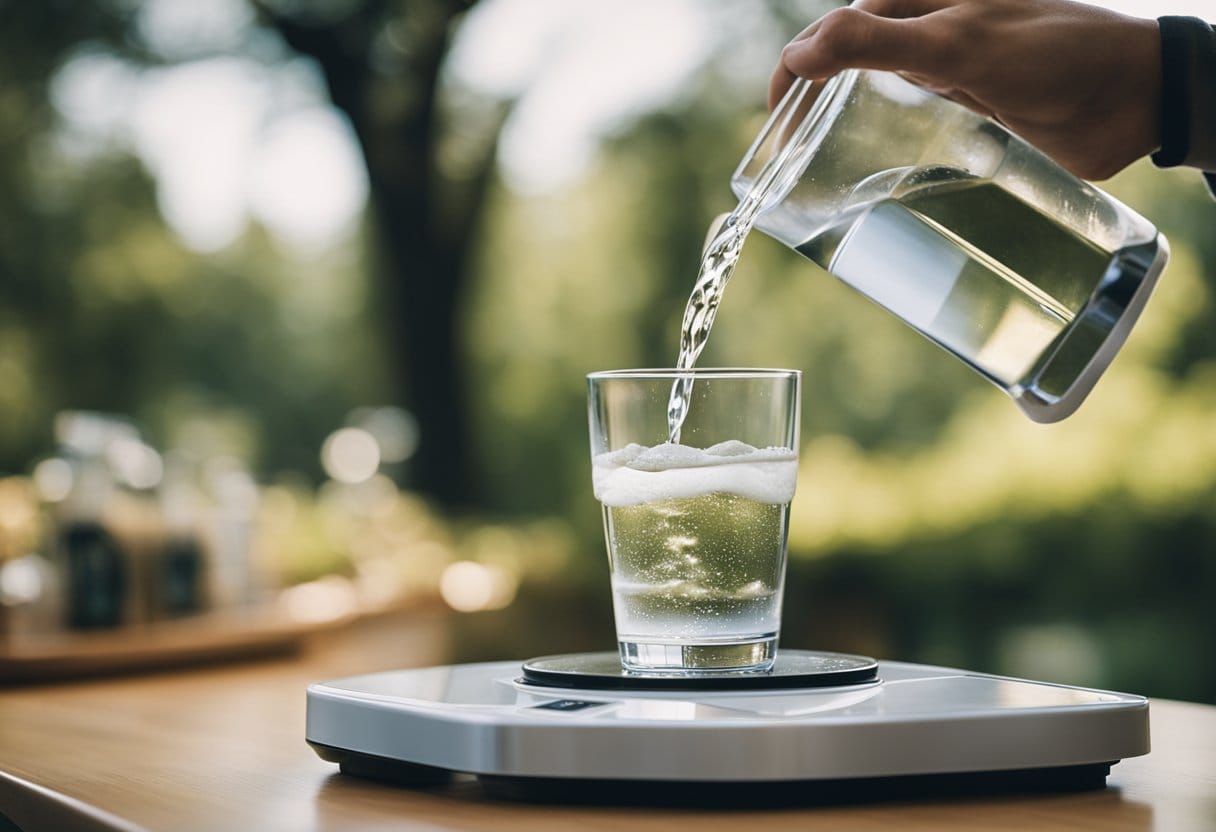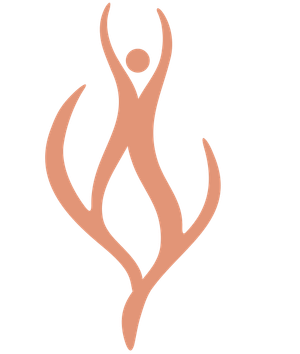Hydration plays a crucial role in managing body weight. Proper fluid intake is essential to various bodily functions, including metabolism and appetite regulation.
The relationship between water consumption and weight loss has been the subject of numerous studies. It's evident that drinking water can lead to a temporary increase in the resting energy expenditure, or the number of calories burned while at rest. For me, this means that staying hydrated can support my weight loss efforts by slightly boosting my calorie expenditure throughout the day.
However, it's important to distinguish thirst from hunger. Sometimes, the body may signal hunger when it's actually in need of hydration. Learning to recognize the signs of thirst ensures that I drink adequate fluids rather than unnecessarily increasing my food intake. By paying attention to my body's hydration cues, I can make informed decisions that support my weight management goals.
The Role of Hydration in Weight Management
Proper hydration is essential for maintaining a healthy weight. I will explore how water composition in the body, metabolism, and appetite are influenced by hydration levels.
Understanding Body Water Composition
A body is composed of approximately 60% water, which plays a critical role in various functions essential to life. Adequate hydration is vital for these processes, and the balance of body water is dynamically maintained by my intake and loss of fluids.
- Intracellular Fluid (ICF): About two-thirds of my body's water is held within cells.
- Extracellular Fluid (ECF): The remaining one-third is outside cells, including plasma and interstitial fluids.
By keeping these compartments in balance, I help my body regulate its weight more effectively.
Hydrations Effect on Metabolism
When I'm well-hydrated, my body can more efficiently process nutrients and support the thermogenic process, which is the body’s heat production. The heat generated during this process burns calories, contributing to weight management. Additionally, drinking enough water can help me feel fuller for longer, reducing the likelihood of overeating. Hydration can impact my metabolic rate – the rate at which I burn calories. When I am hydro balanced:
- My body can efficiently engage in thermogenesis, the process of heat production, which requires water.
- Every chemical reaction in my metabolic process, including energy creation, relies on water as a solvent.
Therefore, maintaining optimal hydration can support my metabolic function and energy expenditure.
Hydration and Appetite Control
Drinking water before meals can lead to a reduction in intake of calories during the meal. This is how hydration influences the appetite:
- Feeling of fullness: Water provides volume without calories, promoting a sense of satiety.
- Mistaken hunger: Sometimes, I might confuse thirst for hunger – drinking water can prevent this misinterpretation.
By understanding these aspects of how hydration can affect the appetite, the better it is to manage food intake for weight control.
Water Intake Recommendations

Effective hydration plays a crucial role in weight management. Daily water intake guidelines and hydration strategies are specific to weight loss.
Daily Water Intake Guidelines
My understanding of the literature indicates that adults should aim for a daily water intake of about 3.7 liters for men and 2.7 liters for women. This includes all beverages and foods. For a clearer structure, here's a breakdown:
- Men:
- Beverage water: At least 3 liters (about 13 cups)
- Food moisture: Around 700 to 800 milliliters
- Women:
- Beverage water: At least 2.2 liters (about 9 cups)
- Food moisture: Around 500 to 700 milliliters
If you reside in a warm climate and or you have increased physical activity, it is must that you hydrate more than the average person living in a cold climate.
Hydration Strategies for Weight Loss
When focusing on weight loss, water can be a valuable tool. I suggest drinking a glass of water before meals to potentially reduce caloric intake. Evidence supports that it might help some individuals feel fuller sooner. Additionally, replacing calorie-laden beverages with water can significantly cut down daily calorie consumption. Here's a quick guide:
- Pre-Meal Water: Drink 250ml (1 cup) of water 30 minutes before eating.
- Replace Sugary Drinks: Opt for water instead of soft drinks, juice, or high-calorie coffee beverages.
- Track Hydration: Use an app or journal to ensure adequate water intake through the day.
It's important to tailor hydration to individual needs and consult healthcare providers when making changes to diet or hydration for weight loss.
Interrelationship Between Hydration and Exercise
Staying hydrated is crucial for maximizing physical performance and improving recovery after exercise, which can impact weight management efforts.
Hydration for Optimal Physical Performance
Adequate hydration is essential for maintaining endurance and strength during exercise. Dehydration can lead to decreased performance, as even a small fluid loss of 2% of body weight can impair physical abilities. Electrolytes, such as sodium and potassium, play a key role in muscular function and fluid balance.
- Before Exercise: Aim to consume approximately 17-20 ounces of water 2-3 hours prior.
- During Exercise: Drink 7-10 ounces every 10-20 minutes to replenish fluids lost through sweat.
Post-Exercise Rehydration and Weight Management
Rehydrating after exercise is vital for weight management as it helps to restore fluid balance and assists in the recovery process. Proper hydration post-workout can prevent overeating, as thirst is often mistaken for hunger. Additionally, water can increase feelings of fullness, helping to reduce overall calorie intake.
- Immediately After Exercise: Drink 16-24 ounces of water for every pound of body weight lost.
- Weight Management: Incorporate water-rich foods like fruits and vegetables into meals to aid hydration and satiety.
Hydration, Diet, and Weight Loss

Hydration plays a pivotal role in diet and weight management. Adequate water intake can influence overall calorie consumption and the effectiveness of a weight loss diet.
Impact of Beverages on Caloric Intake
I find that many beverages contribute significantly to daily caloric intake without providing satiety. For example:
- Soda and sugary drinks: A 12-ounce can of soda can contain around 150 calories.
- Specialty coffees: A medium-sized flavored latte can have up to 250 calories.
Conversely, water and unsweetened teas have negligible calories and can serve as replacements to reduce total calorie intake.
Role of Hydrating Foods in Dieting
Consider incorporating hydrating foods into a diet a powerful strategy for weight loss. These foods often have high water content and provide volume, which can help to feel full without consuming many calories. Examples include:
- Cucumbers: 95% water
- Strawberries: 91% water
- Spinach: 93% water
By filling my diet with these types of foods, I support hydration and reduce the likelihood of consuming unnecessary calories.
Monitoring Hydration and Weight

I understand that maintaining proper hydration and managing weight effectively requires consistent monitoring. My aim is to discuss practical methods for assessing hydration status and tracking weight changes combined with fluid intake.
Assessing Hydration Status
Use several indicators to assess hydration status. The color of my urine is a clear signal; pale yellow indicates adequate hydration, while a darker color suggests a need for more fluids. Additionally, monitor the thirst level and frequency of urination. For a more precise measure, track body weight before and after exercise; a decrease is likely due to fluid loss.
- Urine Color: Light pale yellow is ideal; dark yellow signifies dehydration.
- Thirst: If feeling thirsty, it's a cue to drink more water.
- Frequency of Urination: Regular urination indicates good hydration, less frequent may suggest dehydration.
- Weight Change: Losing weight immediately after physical activity typically represents fluid loss.
Tracking Weight Changes and Fluid Intake
Keep a daily log to track fluid intake and changes in body weight. By measuring the weight at the same time each day, preferably in the morning, it ensures consistency and accuracy. Record the amount of fluids consumed each day, noting the types of fluids to see the correlation between hydration levels and weight.
- Daily Fluid Intake: Note all the fluids consumed, including water, tea, coffee, and others.
- Consistent Weighing Time: Weighing at the same time each day, such as every morning after using the restroom, provides the most accurate data.
- Weight Record: Log daily weights to notice trends over time.
In the pursuit of a healthier, more balanced life, we must not underestimate the role of hydration in our weight loss endeavors. As we wrap up our exploration of the profound link between staying well-hydrated and shedding those unwanted pounds, it becomes evident that embracing this connection is vital for achieving our weight loss goals.
Through personal experiences and thorough research, I've come to recognize that proper hydration not only supports our metabolism but also helps us control unnecessary cravings that often derail our progress.
So, remember to make hydration an integral part of your weight loss strategy. It's a simple yet powerful tool that can lead you towards a healthier, more vibrant you
Stay Vibrant, Stay Healthy!!
Olivia





